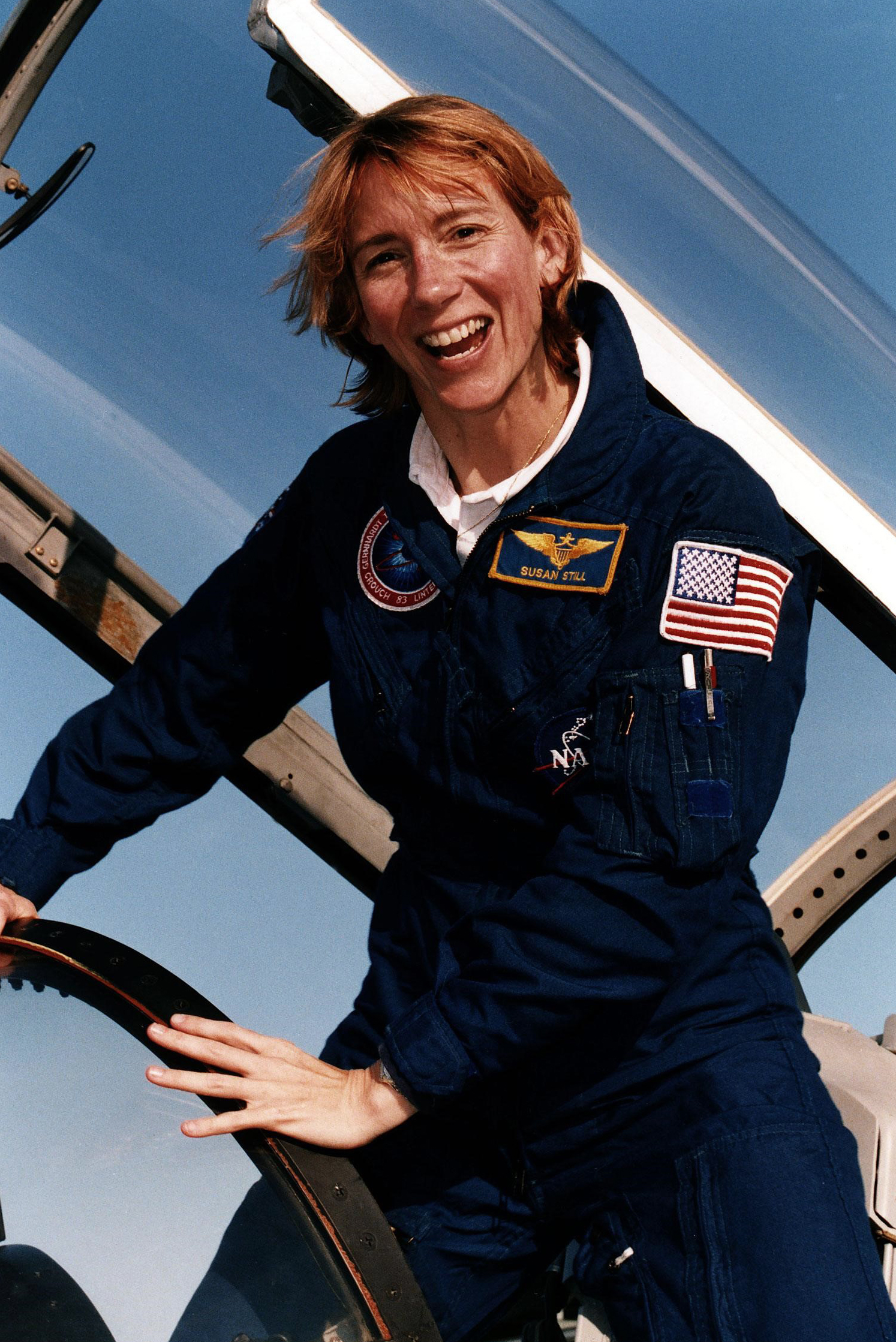This former NASA astronaut steered a space shuttle to safety after overcoming gender discrimination
'The airplane does not know the gender of the person sitting in the seat.'

As a Navy pilot, NASA astronaut Susan Kilrain used decades of flying experience to face down a space emergency.
Kilrain, then known as Susan Still, steered the space shuttle Columbia safely back to Earth after the mission aborted in orbit on April 8, 1997. An erratic fuel cell forced the landing after only four days in space, which was a fraction of the 15 days slotted on the mission manifest.
Despite showing her skills under pressure, Kilrain faced decades of discrimination on the road to space. But those catcalls taught her how to "compartmentalize" and focus on safety and other mission-critical items, she recalled in a recent interview at Saudi Arabia's Space Camp 2101 conference just ahead of Women's History Month this March.
"Maybe you had a bad day at home, or your dog died, or you have an emergency on orbit," Kilrain said during an on-stage interview during the conference, which ran at King Abdullah University of Science and Technology from Feb. 5 to Feb. 9. "You put that aspect — the risk, the danger — in the back of your head. You handle the situation as you've been trained to do."
Related: Pioneering women in space: A gallery of astronaut firsts
Saudi Arabia's control of women has been extreme, until recently. Male family members such as fathers, brothers and husbands dictated a woman's livelihood, clothing or ability to leave her residence until 2019, the New York Times says.
That said, women activists are still prone to being jailed or executed, and migrant workers are known to face abuse, according to ABC Australia. Critics have also said that Saudi Arabia, an absolute monarchy that follows Islamic Sharia law, is only making surface changes in its legislation to attract tourism.
Breaking space news, the latest updates on rocket launches, skywatching events and more!
But in celebration of progress in female rights, Kilrain spoke at the Saudi Arabian conference about how much things have changed even for American women in a generation. (The interview was short and did not discuss aspects of ethnicity, nor other genders.)
"People respect women in engineering a lot more now than they did back when I was coming through [the Navy]," said Kilrain, who joined the service in 1985. She allowed that young women today have far more opportunities, but in her own time, she tried to ignore detractors. "The airplane does not know the gender of the person sitting in the seat."
Related: Women of color in astronomy face greater degree of discrimination, harassment
Kilrain and her space shuttle crew were lucky. They were coming home because of flight rules; all three healthy fuel cells were needed for shuttle missions to generate electricity, no matter what. Since the astronauts weren't facing down an extremely urgent event like a fire, they could somewhat choose the timing of their arrival for maximum success.
NASA also gave the entire mission a rerun later in 1997, complete with the same crew. Columbia was refurbished and the fuel cells worked flawlessly during STS-94, a 15-day mission in July 1997 dedicated to science experiments with the European Space Agency's Spacelab module.
Retired from the astronaut office in 2003, Kilrain remains active as a space advocate and said she sees her role today as working for gender parity in the community.
"Folks like myself take an important role in mentoring young ladies that are coming through traditionally male fields like engineering," she said, "and also moving women ... up in the power structure of an organization, like making them leaders."
Women's History Month was officially recognized by the United States Congress in 1987, but follows almost a century of other commemorations in March concerning women, according to Britannica. March 8 also marks the United Nations' International Women's Day.
Elizabeth Howell is the co-author of "Why Am I Taller?" (ECW Press, 2022; with Canadian astronaut Dave Williams), a book about space medicine. Follow her on Twitter @howellspace. Follow us on Twitter @Spacedotcom or Facebook.

Elizabeth Howell (she/her), Ph.D., was a staff writer in the spaceflight channel between 2022 and 2024 specializing in Canadian space news. She was contributing writer for Space.com for 10 years from 2012 to 2024. Elizabeth's reporting includes multiple exclusives with the White House, leading world coverage about a lost-and-found space tomato on the International Space Station, witnessing five human spaceflight launches on two continents, flying parabolic, working inside a spacesuit, and participating in a simulated Mars mission. Her latest book, "Why Am I Taller?" (ECW Press, 2022) is co-written with astronaut Dave Williams.

